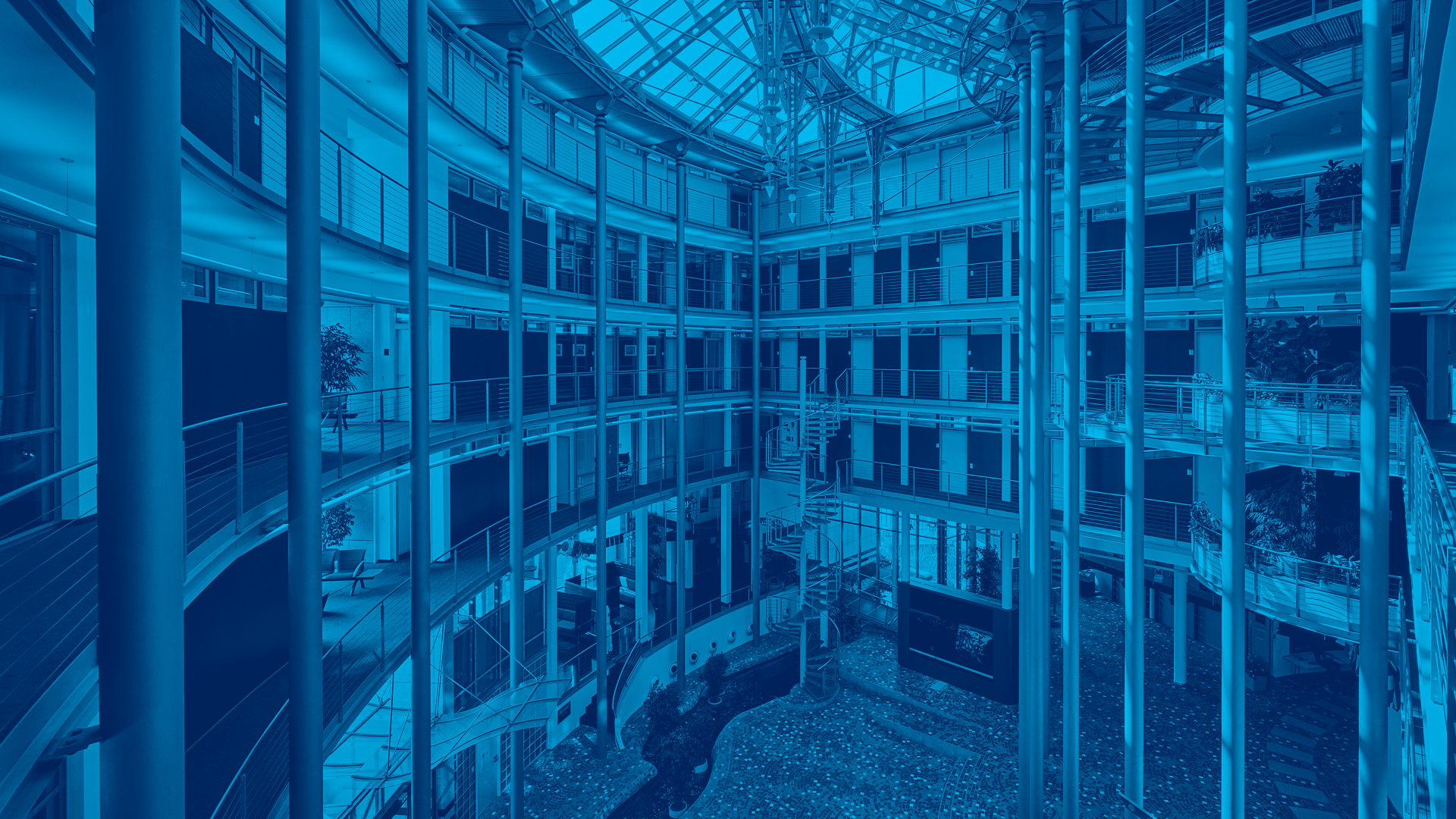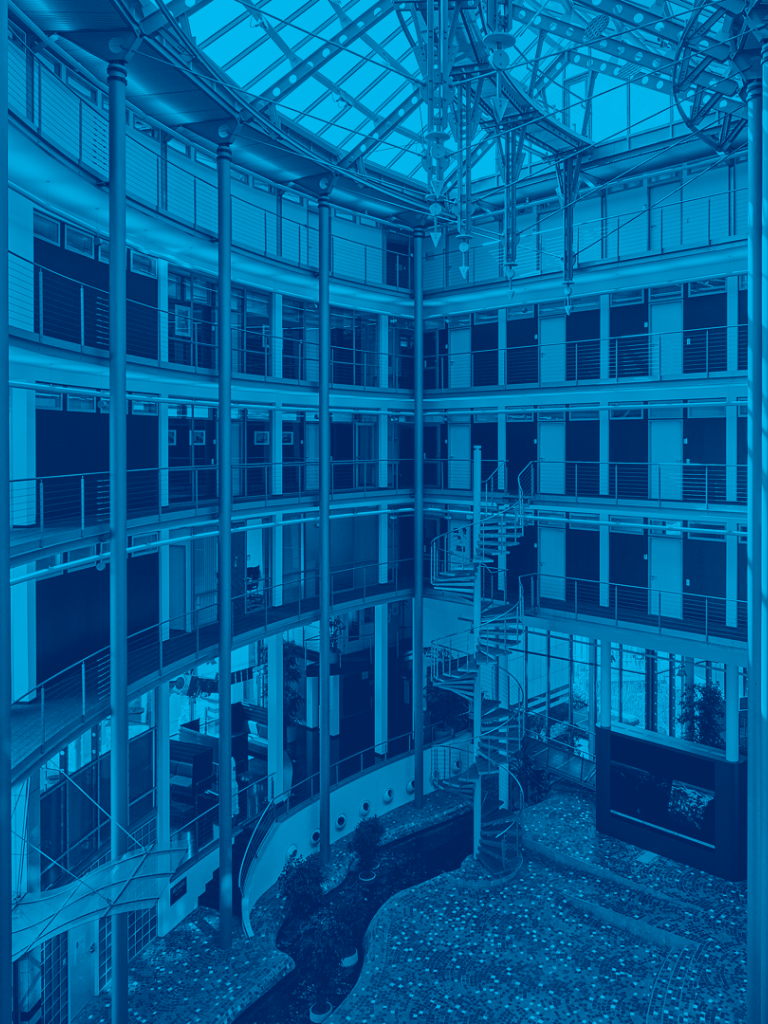
Inside EUMETSAT: meet Ruth and Hannes
Inside EUMETSAT interviews Ruth Britton and Hannes Langeder.


Inside EUMETSAT returns after a brief hiatus with another very special interview with two more of our outstanding EUMETSAT colleagues: Ruth Britton and Hannes Langeder! Ruth joined EUMETSAT in 2019, while Hannes has been here a while, having joined the team in March of 2010.
20 June 2023
19 April 2021
Inside EUMETSAT is a series of articles for the EUMETSAT Science Blog that will be published over the next weeks and months. Each week, we’ll introduce you to two valued members of our team: one newcomer, joined in the past year, and one senior staff member who has spent years at the organisation.
In a time that’s far from ordinary, we hope to use this opportunity to introduce our readers to some of the diverse and friendly faces they might encounter in the course of a normal day at EUMETSAT. It’s our goal to appreciate and celebrate all the different and talented people who work here. We hope these articles will help you discover—or rediscover—EUMETSAT.
Meet Ruth and Hannes!


What is your current role at EUMETSAT?
Ruth Britton: I am currently working with the Data Services Architecture team in GSI as a Junior Computer Systems Engineer. I joined as part of the Early Career Engineering Program (ECEP) in October 2019. My main role to date has been designing and implementing the EUMETCast File Recovery Service, a web service to facilitate the automatic identification and retrieval of missing data from a user's Reception station, and organising upgrades to the Dissemination System for future missions.
Hannes Langeder: I am the Deputy Head of HR and lead the team of experts taking care of all administrative aspects of HR. This includes budgeting for the Organisation’s human resources, payroll, entitlements administration, social security, pension, time administration, and so on. In addition, I represent EUMETSAT at the Coordinated Organisations, a forum that brings together representatives from the Council of Europe, ESA, ECMWF, EUMETSAT, NATO and OECD to coordinate on remuneration policies and pension matters. I do this in the so-called "tripartite format" with Member States and Staff Representatives, or in the Standing Committee on Pension matters, which I have had the honour to chair since last year. So you can see, there is a lot of variety in my tasks, and there is never really a "dull moment."
What has been your biggest challenge during COVID and lockdown? Do you feel supported by EUMETSAT?
RB: I had only been working here for a few months when the first lockdown began, so I was still adjusting to a new country and workplace. Therefore, it was particularly difficult to move to full-time teleworking with very limited social interactions. Thankfully, I had the opportunity to meet my team members and spend time with them in the office beforehand. Nevertheless, maintaining this communication and expanding my network over Skype and Zoom has often been challenging.
HL: As for many of our colleagues, the biggest initial challenge was moving all (or most of) our processes from paper-based to electronic. We managed to do this in a rather short time-frame. Although there were obviously some teething problems, we found we could pay staff and manage employment contracts in a timely manner. When teleworking had become a routine matter, the challenge turned more to balancing work with private life. Considering the volatility, I believe that EUMETSAT did support me well in technical terms (thanks ICT!), but also by providing training and coaching support, organised by my colleagues in HR.
Where do you usually work from? How do you interact with your colleagues?
RB: I work mainly from my apartment in Darmstadt, although I go into the office once or twice a week to get a change of scenery and see some colleagues. The majority of my interactions with colleagues have been through Zoom.
HL: At the moment and with due consideration of EUMETSAT's policy, I have reduced my onsite presence to approximately 1 day/week in the office. I have regular contacts with my team membersweekly 1-on-1s and bi-weekly team meetings. In addition, we have regular divisional and HR Management team meetings, which are all essential for sharing information. I also try to be as quick as possible in responding to staff members' requests, either by mail or the usual Skype/Zoom/WebEx formats.
What has your experience of EUMETSAT been during normal, non-pandemic times? Why do you like working here?
HL: I like to work here, as EUMETSAT is an organisation which does not stop evolving: when I first started in 2010, there was only the main building with its North and South Wings! We numbered some 240 staff members—compared to currently around 560! So we have grown in terms of buildings, staff numbers and, most importantly, programmes. But we also improved and will continue to improve in terms of policies, like the flexi-time and teleworking policies, and a lot of other employment conditions, and here I would only like to mention the fact that our Member States recently approved our new Childcare Facility.
What has been your experience of EUMETSAT been like so far? Were you able to come to HQ and meet colleagues face-to-face?
RB: Fortunately, I started a few months before lockdown, which meant that I had the opportunity to meet members of my team and division face-to-face and work with them in the office. My experience has been very positive so far. Everyone that I have had the pleasure to work with has been very welcoming and helpful, often happy to take the time to pass on their knowledge of the various tools and systems in place here. Working in an international environment is very rewarding and it is clear that everyone on site is passionate about the work they do, creating a very motivating and supportive atmosphere.
How did your recruitment take place?
RB: My recruitment took place in summer 2019, that was pre-COVID so everything was very standard. The first set of interviews and assessments took place online and then I was invited for an interview in Darmstadt. It was a very positive recruitment process. The on-site interview gave me the chance to see the workplace environment and learn more about the company, and also to meet some of the staff members, including previous ECEP recruits. The atmosphere was very positive and I was delighted when I received an email saying my application had been successful.
What book are you currently reading?
RB: The Midnight Library by Matt Haig.
HL: A biography about the Austrian writer Thomas Bernhard.
Which weather phenomenon represents you best?
RB: Cloud.
HL: Summer rain.
If expense were not a concern, what would you like to do in the next five years?
RB: In the next five years, I would love to travel for a bit. I have not yet had the opportunity to explore anywhere outside Europe so I have a long list of places I would like to visit once travel opens up again.
HL: A road and canoeing trip through Canada.
According to you, what is the most exciting science/technology innovation in the last century?
RB: I think medical imaging has been an incredible innovation of the last century. I did my Masters research project on MR imaging which was really interesting and enjoyable for me and it is clear that this invention has had a huge impact on modern medicine and healthcare today.
HL: Internet for all has changed the world and humankind.